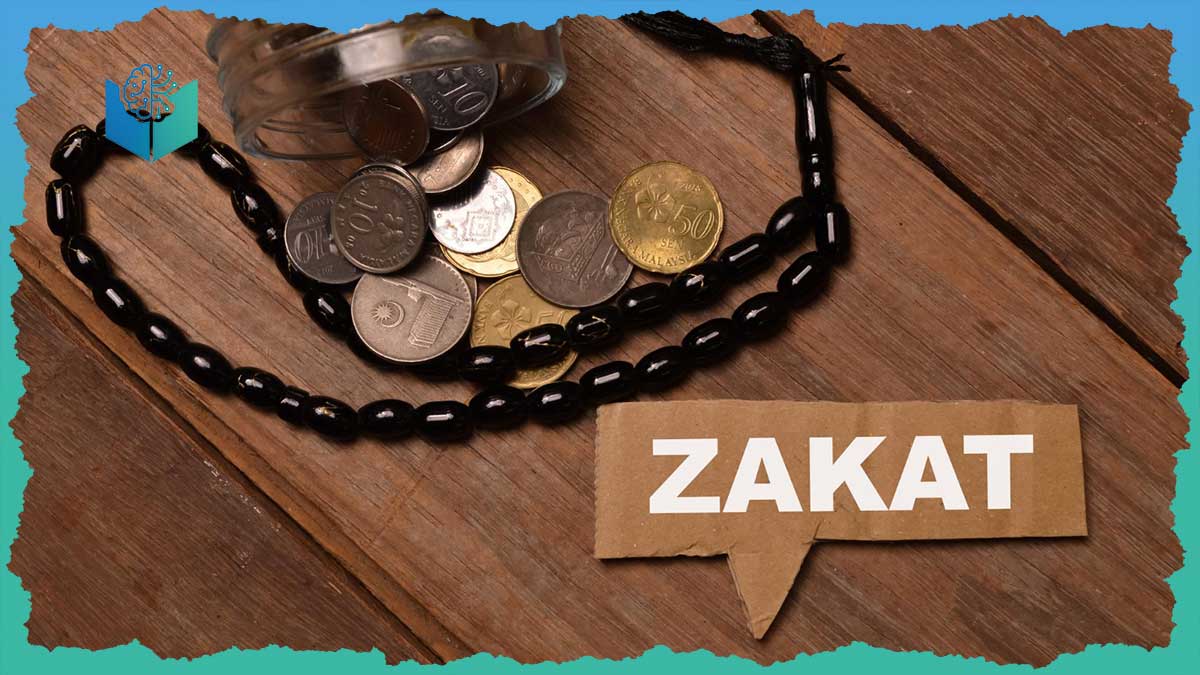Financial Management,the Quranic Way

Effective financial management is crucial for everyone in today’s complex world. While modern finance offers numerous strategies, for Muslims, the ultimate guide to handling wealth and resources lies within the Quran and the teachings of the Prophet Muhammad (PBUH). Islamic Financial Management isn’t merely about making money; it’s a holistic approach to wealth that integrates ethical principles, social responsibility, and spiritual goals. Islamic teachings do not separate personal piety from economic behavior; rather, they frame financial conduct as an act of worship when aligned with divine guidance.
This article delves into Islamic Economics by exploring key Quranic Financial Principles, demonstrating how they offer a comprehensive framework for Wealth Management in Islam, and fostering an Islamic Economic Lifestyle. From diligent Islamic Budgeting and Islamic Financial Planning to the spiritual purification gained through Halal Savings and Halal Investing, we’ll explore how to manage money according to the Quran, ensuring financial stability while earning divine reward.
In the contemporary world, these principles also guide Muslims in navigating Islamic banking and finance, offering alternatives to interest-based systems while remaining faithful to Quranic ethics.
Foundations of Islamic Financial Management
At its core, Islamic Financial Management views wealth as a trust from Allah, not solely as personal property. This foundational principle shapes every aspect of Personal Finance in Islam. Wealth is a means, not an end, and accountability before Allah defines how it is earned, spent, saved, and circulated within society.
This worldview forms the ethical backbone of Islamic banking and finance, ensuring that financial systems serve justice, transparency, and shared prosperity rather than exploitation.
Earning and Acquiring Wealth
The Quran emphasizes earning a living through lawful (halal) means, rejecting any form of exploitation, injustice, or forbidden transactions. Income must be connected to real value creation and moral responsibility.
Prohibition of Riba (Interest)
A cornerstone of Islamic Economics is the strict prohibition of interest. The Quran explicitly condemns riba, stating:
“Allah has permitted trade and forbidden interest” (Quran 2:275).
This principle encourages real economic activity based on risk-sharing and ethical partnerships rather than speculative gains. For Muslims, understanding this is fundamental to Halal Investing and Halal Savings, guiding decisions away from conventional interest-based systems.
This prohibition is the reason why Islamic finance loans differ fundamentally from conventional loans. Instead of charging interest, Islamic financing structures are based on trade, partnership, or leasing, ensuring fairness for all parties involved.
Honesty and Fairness in Transactions
Beyond avoiding interest, Islamic teachings stress integrity in all dealings. Cheating, deception, and unfair pricing are strictly prohibited.
“O you who have believed, do not consume one another’s wealth unjustly but only [in lawful] business by mutual consent.” (Quran 4:29)
This promotes trust and fairness, essential for a healthy Islamic Economic Lifestyle and foundational to all types of Islamic banking, which rely on transparency and mutual agreement rather than hidden conditions.
Avoiding Forbidden Sources
Income from sources like gambling, alcohol, pork products, and industries that harm society is considered unlawful. Muslims are encouraged to seek sustenance from pure and permissible means. This adherence defines Halal Savings and Halal Investing practices, ensuring one’s wealth is purified from its origin.
Such ethical screening is also a defining characteristic of Islamic banking and finance, where investments are filtered to align with Quranic values.
Avoiding Waste and Extravagance
While Islam encourages earning wealth, it strongly condemns its misuse through extravagance and wastefulness. Quranic verses about spending and wastefulness are clear on this.
Moderation in Spending
The Quran calls for moderation, striking a balance between miserliness and lavishness:
“And [they are] those who, when they spend, do so not excessively or stingily but are ever, between that, [justly] moderate.” (Quran 25:67)
This principle forms the basis of effective Islamic Budgeting and responsible consumption. It encourages fulfilling needs without succumbing to excessive desires. Moderation also supports financial sustainability, reducing reliance on debt and encouraging mindful use of resources.
Condemnation of Wastefulness (Israf)
Quranic verses about spending and wastefulness highlight the dislike of waste:
“And do not spend wastefully. Indeed, spendthrifts are brothers of devils…” (Quran 17:26–27)
This extends beyond personal finance to resource management and environmental responsibility, reflecting a holistic view of financial discipline. Understanding how to manage money according to the Quran means recognizing that every resource has value and should not be squandered—an ethic deeply embedded in Islamic economic thought.
Wealth Management and Spiritual Purification
Wealth Management in Islam transcends mere accumulation; it’s intrinsically linked to purification and social welfare. Money is not judged by how much is owned, but by how responsibly it is handled.

The Role of Zakat and Sadaqa in Wealth Purification
Charity holds a paramount position in Islamic Financial Principles, serving as both a spiritual obligation and a means of wealth purification and redistribution.
Zakat: The Obligatory Alms
Zakat is an annual obligatory charity on specific types of wealth that have reached the nisab.
“And establish prayer and give zakah…” (Quran 2:110)
The role of Zakat and Sadaqa in wealth purification is immense. Zakat purifies wealth while strengthening social equity—an objective shared by ethical financial systems within Islamic banking and finance.
Sadaqa: Voluntary Charity
Muslims are also encouraged to give voluntary charity (Sadaqa), which includes financial aid, kindness, and service.
“And whatever you spend of good – it will be fully repaid to you…” (Quran 2:272)
This reinforces the idea that wealth circulation benefits both giver and receiver, complementing structured financial mechanisms such as Islamic finance loans designed to empower rather than burden.
Balancing Worldly Finances and Spiritual Goals
Islamic Financial Planning aims to achieve material stability without losing sight of the ultimate spiritual objective: the pleasure of Allah.
Prioritizing Needs Over Wants
A key Quranic Financial Principle is distinguishing between necessities and excess. This discipline prevents debt dependency and aligns spending with values.
Investing for the Hereafter
Wealth can also be invested for lasting reward through waqf, education, and healthcare. Such initiatives mirror the social objectives behind many types of Islamic banking, where profit is linked with community development.
Financial Lessons from the Life of Prophet Muhammad (PBUH)
The Prophet’s life exemplified simplicity, generosity, and accountability. His approach remains a living model for ethical finance and responsible wealth management.
Practical Application: Creating an Islamic Economic Lifestyle
Translating these divine principles into daily practice involves conscious decisions about earning, spending, saving, and giving.

Islamic Budgeting and Financial Planning
Creating an Islamic family budget is a practical step to implement the Quranic Financial Principles.
- Needs-Based Allocation
- Zakat Allocation
- Halal Savings and ethical investments
- Regular Sadaqa
These practices naturally prepare Muslims to engage responsibly with Islamic banking and finance services when needed.
Cultivating an Islamic Economic Lifestyle
An Islamic Economic Lifestyle is characterized by responsibility, gratitude, and generosity.
- Mindful consumption
- Debt avoidance
- Financial literacy
Understanding types of Islamic banking empowers Muslims to make informed decisions that align with faith while addressing modern financial needs, supporting a balanced lifestyle muslim.
Conclusion
The Quranic Financial Principles offer a robust and ethical framework for Financial Management, the Quranic Way. By focusing on lawful earnings, avoiding waste, embracing charity, and engaging responsibly with Islamic finance loans, Muslims can achieve financial well-being while fulfilling spiritual obligations. This holistic approach, strengthened through Learning Quran online, ensures that wealth serves humanity and leads to both worldly prosperity and eternal reward, offering profound insights about Islam and its comprehensive guidance on life.
Q&A
What is the financial system of Islam?
It is a Sharia-based system prohibiting interest, emphasizing ethical trade, risk-sharing, and social welfare through Zakat.
How to manage finances in Islam?
By earning halal income, avoiding waste and riba, planning budgets wisely, and prioritizing charity and responsibility.
What is an Islamic finance loan?
It is a Sharia-compliant financing arrangement that avoids interest and is structured around trade, partnership, or leasing instead.
Islamic banking and finance (Wikipedia)
🔗 https://en.wikipedia.org/wiki/Islamic_banking_and_finance
Islamic economics and finance (Fiveable)
🔗 https://fiveable.me/the-islamic-world/unit-9
Islamic Economics Principles (IQRA Network)
🔗 https://iqranetwork.com/blog/what-are-the-key-principles-of-islamic-finance-and-economics/
Islamic Economics | Principles and Objectives (Islamic Info Center)
🔗 https://islamicinfocenter.com/islamic-economics/
Islamic Finance Principles (Digital Finance News)
🔗 https://digitalfinancenews.com/research-reports/islamic-finance-principles-foundations-applications-and-global-implications/
Profit and Loss Sharing (Wikipedia)
🔗 https://en.wikipedia.org/wiki/Profit_and_loss_sharing
Murabaha (Wikipedia)
🔗 https://en.wikipedia.org/wiki/Murabaha
Bai Salam (Wikipedia)
🔗 https://en.wikipedia.org/wiki/Bai_Salam
Principles of Islamic Economic System – Islamic Info Center
🔗 https://islamicinfocenter.com/principles-of-islamic-economic-system/





